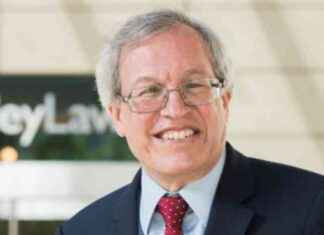Securing Elections: ABA’s Advocacy for Ballot Access
As an organization dedicated to upholding justice and the rule of law, the American Bar Association prioritizes safeguarding the fundamental right to vote. Among its extensive efforts, the ABA has worked tirelessly to protect the voting rights of historically disenfranchised communities, including communities of color, people with disabilities, and those who are incarcerated or formerly incarcerated. It has also advocated for the safety of election workers, mobilized lawyers to serve as election workers, and provided essential voting information and recommendations to the general public to ensure fair, transparent, and accessible electoral processes.
In a landmark case in 2022, the ABA submitted an amicus brief in the case of Allen v. Milligan, where it argued that a proposed Alabama redistricting map would violate Section 2 of the federal Voting Rights Act, undermine equality in voting nationwide, and cause lasting harm to minority voting rights, democracy, and the rule of law. The U.S. Supreme Court’s majority opinion agreed with the association’s amicus, showcasing the ABA’s influence in protecting voting rights.
ABA President Mary Smith. Photo courtesy of ABA Media Relations.
Recognizing the significant voting barriers faced by Native Americans and Alaska Natives, the ABA House of Delegates voted at the 2020 midyear meeting to urge the federal government to safeguard future access to the polls for those communities. Additionally, the ABA has consistently urged for the repeal of laws that disenfranchise people based on criminal convictions and for the restoration of voting rights to those currently and formerly incarcerated. Last year, then-ABA President Deborah Enix-Ross expressed the ABA’s appreciation to the lead sponsors of the bicameral Democracy Restoration Act, which aims to restore the right to vote in federal elections to people reentering society after incarceration.
With tensions and confusion rising among voters during recent elections, the ABA mobilized lawyers to assist as election workers. In 2020, the ABA Standing Committee on Election Law, in collaboration with the National Association of Secretaries of State and the National Association of State Election Directors, launched Poll Worker, Esq. The campaign connects lawyers with the resources they need to serve as election workers, helping ensure elections are run effectively and impartially.
To enhance the integrity of and public confidence in the election process, the ABA Standing Committee on Election Law regularly updates the ABA Election Administration Guidelines and Commentary for use by election officials. The 2023 updates focus on best practices for accessibility and the importance of educating voters and poll workers about the rights and needs of disabled voters.
Addressing the rise in physical threats to election officials and workers, the ABA approved a policy in 2023 urging federal, state, and local officials to adopt laws and policies that protect all election workers who defend and support our democracy. In response to broader challenges, ABA President Mary Smith created the ABA Task Force for American Democracy to examine ways to improve public trust in our election system and foster constructive civic discourse.
As a centerpiece of the 2024 ABA Annual Meeting in August, the task force will host a Democracy Summit, which will feature a discussion on threats to democracy, the role of lawyers in ensuring democracy, and an overview of the task force and its work.
In addition to leading the ABA’s legislative advocacy efforts, the ABA Governmental Affairs Office has created a digital tool to help voters find information they need to get ready for the upcoming presidential election. The ABA Election Center can be found at ambar.org/electioncenter.
As the nation faces the challenges of another tumultuous election season, the American Bar Association will continue its efforts to uphold the principles of democracy and help ensure every voter is heard through the ballot box. This report is written by the ABA Governmental Affairs Office and discusses advocacy efforts by the ABA relating to issues being addressed by Congress and the executive branch of the U.S. government.











